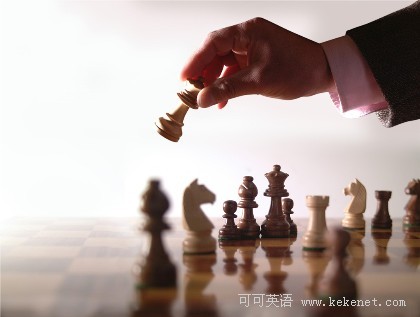
It may take years of hard work to become a chess grandmaster, but it gives a real boost to the brain - for working out chess problems, at least. It seems expert chess players use both sides of their brain to process chess tasks, rather than just one。
要成为国际象棋大师,数载勤学苦练少不了,然而痛苦必定有回报,研究发现,象棋大师们头脑发达,可以同时动用两侧大脑来解开棋局。
Merim Bilalic at the University of Tübingen in Germany used fMRI to scan the brains of eight international chess players and eight novices while they identified either geometrical shapes or whether the pieces on a chess board were in a check situation. The expert players were quicker at solving the chess problem, activating areas on both sides of their brains as they did so. The novices used just the left side。
德国蒂宾根大学的梅利姆·毕拉利克让八位国际象棋大师和八位入门新手识别几何图形或围解将死棋局,同时利用功能核磁共振成像设备分别对他们的大脑进行扫描。较之仅用左脑思考的新手,大师们能够双脑并用,破局速度也更快。
Bilalic had expected the expert players to use a faster version of the processing mechanism used by novices. "But once the usual brain structures were engaged, the experts utilized additional complementary structures in the other half, to execute processes in parallel," he says。
毕拉利克预期大师比新手的思维速度更快,但扫描结果显示“大师们左侧的脑部结构一活动,对应的右侧大脑就会同时开始运作,二者双管齐下”。
This parallel processing didn't occur when the expert players carried out the geometry task, suggesting that it is limited to practised skills. "It shows that there really is no short cut to expertise," says Bilalic。
然而在识别几何图形时,这种双脑并用的现象就会消失,这也意味着勤学苦练才能头脑发达。毕拉利克说:“此项研究说明成功确实无捷径”。












